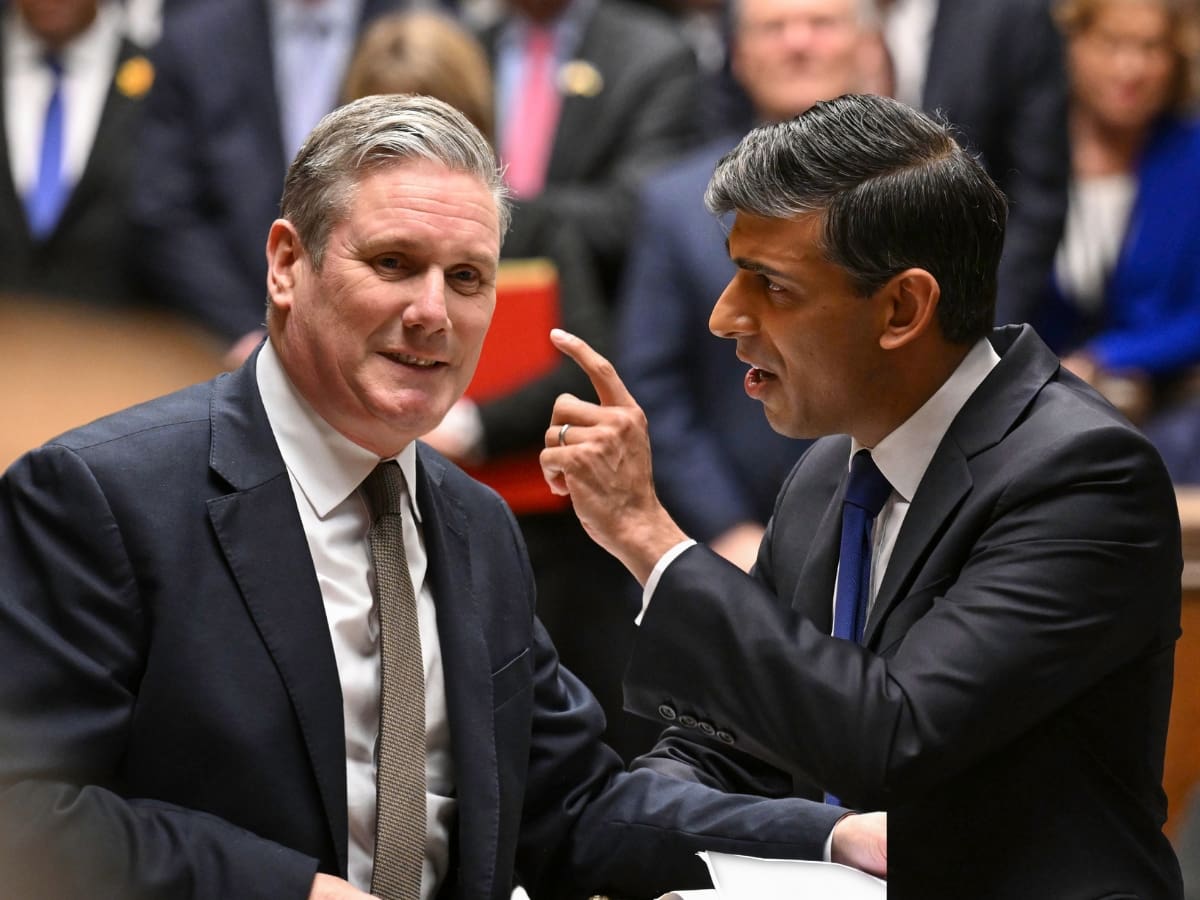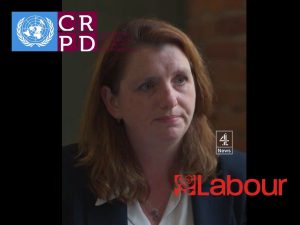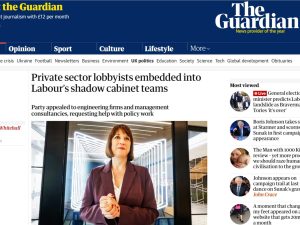There’s a huge issue for voters that may well be central to this year’s general election – whenever that may be. However, so far Labour and the Tories are not saying much about it. That issue is food – and new polling shows it’s central to the public’s thinking at present.
Food on the table at this year’s general election
In this general election year, a political fight for the countryside is brewing. Labour talks about becoming “the party of the countryside” while the Prime Minister promised members of the National Farmers Union (NFU) that “I’ve got your back”.
The Conservatives see the rural vote as one of their last remaining strongholds. Yet it is Labour that should be most concerned about a battleground that in reality is much wider than just the rural vote. The public is backing protesting farmers, but people want a fairer deal for everyday farmers and everyday consumers.
On fundamental issues related to food, voters who are a key part of Labour’s potential coalition to power are asking politicians to champion food systems reform.
Food touches on many of the most important issues to voters. The economy, health, and the environment consistently top rankings. Tackling a dysfunctional food system cuts across all three of these. Yet, previous proposals for holistic reform, like the National Food Strategy, have fallen flat due to ‘nanny state’ concerns. But times have changed.
Polling shows the concern
New polling by the Food, Farming, and Countryside Commission shows that food reform unites voters from a variety of backgrounds, especially those potential Tory to Labour swing voters that will decide the next general election:
- Both Tory and Labour voters agree that affordable food is essential for a fair society: 79% of Conservatives (at the last general election) state that affordable food should be available to everyone or most, 80% of Labour voters agree.
- 68% of the public say it is the Government’s job to make sure everyone can afford healthy food: this rises to 82% of Labour voters at the last general election, and 79% for potential Tory to Labour switchers.
Moreover, as the commission wrote:
Almost half (49%) stated that financial pressures have made them cut back on the quality of food they eat. The research thus reflects a worsening food environment in the United Kingdom, where an estimated 11.3m people nationwide experience food insecurity. This is most acute in low-income areas, with an estimated 1.2 million people living in ‘food deserts’ where affordable, fresh food is severely limited.
Segmenting the electorate
A more nuanced picture emerges once the electorate is segmented according to their deeply held beliefs. Campaign group More in Common did this. Of particular interest are the views of ‘Loyal Nationalists‘ and ‘Disengaged Battlers’.
More in Common describes Loyal Nationalists as:
feel[ing] proud of their country and patriotic about its history and past achievements. They also feel anxious about threats to Britain, in the face of which they believe we need to come together and pursue our national self-interest. Loyal Nationals carry a deep strain of frustration at having their views and values excluded by decision-makers in London.
Then, it describes Disengaged Battlers as:
Disengaged Battlers are focused on the everyday struggle for survival. They have work, but often it is insecure or involves irregular hours. They tend to feel disconnected from other people, and many say they have given up on the system altogether.
Both are strongly represented across the so-called ‘Red Wall’, where Labour is seeking to shore up votes again at this general election.
Overarching voters concerns for the general election
Loyal Nationals are usually the first to raise the ‘nanny state’ worries, but their first-hand experiences of financial pressures and unhealthy food have made them more open about reform, highlighting that food has the potential to be a vote decider:
- Food inflation is impacting potential Labour voters most: almost half (49% of the country state that financial pressures have made them cut back on the quality of food they eat. This is even higher amongst Disengaged Battlers (67% – highest score amongst all segments) and Loyal Nationals (56% – second highest) who form a key part of Labour’s coalition.
- Child malnutrition as a key worry: 59% of Loyal Nationalists state financial pressures are stopping their children from eating healthy food. This is more than any other segment.
- Fairness and food: 70% of Loyal Nationals state that a society is only fair if everyone can have healthy food, this rises to 73% for Disengaged Battlers.
- Intervention needed: Loyal Nationals show the highest support for fining food companies that produce unhealthy food (24%). This is even more than Progressive Activists (22%), who tend to be most supportive of government intervention
This year, The Food Conversation will involve citizens from across the UK through a combination of citizen assembly style workshops and polling, travelling to Northumberland, West Yorkshire, East Kent, Cornwall and South London, as well as Wales, Scotland and Northern Ireland.
A smart government would prioritise food
CEO of the Food, Farming, and Countryside Commission Sue Pritchard said:
Of all the elements of our everyday economy, one of the things we simply cannot manage without is healthy food. How did this basic necessity become a luxury that few can afford? Food is at the centre of some of the biggest challenges this country faces and for many people, eating enough healthy food is becoming impossible.
A smart and strategic government will prioritise action across the whole food chain, from farm to fork. And what we’re hearing from citizens is that this would be a real vote winner.
So, it seems that while Westminster may like to tell us that immigration, security, or the ‘national debt’ are issues we should be worried about – in real life, it’s people’s ability just to survive that’s at the forefront of their minds; perhaps an indictment of the current political system and a weathervane of what needs to change.
Featured image via UK Parliament/Maria Unger




